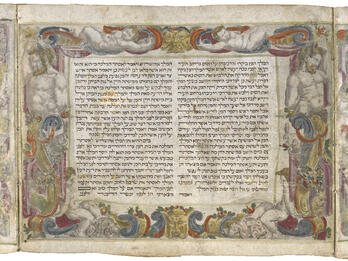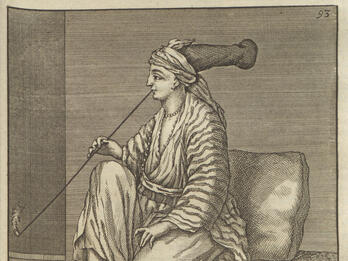Mordechai Dato
The Italian kabbalist Mordechai Dato composed numerous piyyutim (liturgical poems) and Judeo-Italian prayers. Some survived in manuscript, and others were printed in Ashmoret ha-boker (Dawn Watching; Venice, 1720/21) by Aaron Berekhiah of Modena. In addition, Dato wrote biblical commentaries and sermons, which likewise survived in manuscript form, as did his letters on kabbalistic and halakhic matters. Igeret levanon (Letter of Lebanon), by his son, is an account of Dato’s visit to Safed. Dato’s Megilat Esther (The Scroll of Esther) in Ottava Rima is a verse retelling—in Judeo-Italian and therefore more accessible to female readers—of the biblical story of Esther. This story was popular among New Christians, presumably because its heroine was compelled to dissimulate her religious identity; it also provided a model for diaspora Jews in difficult times, as it promised eventual divine redemption.



